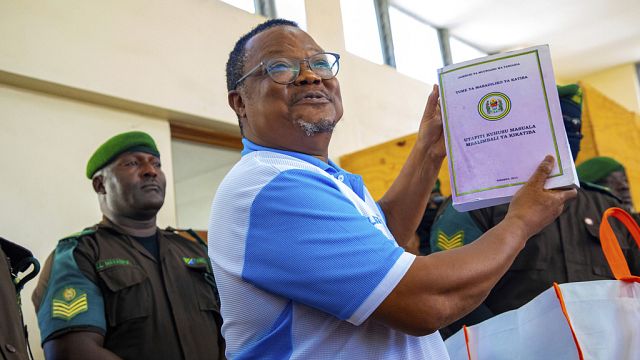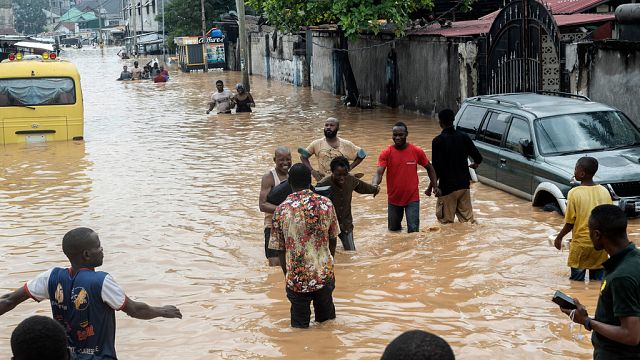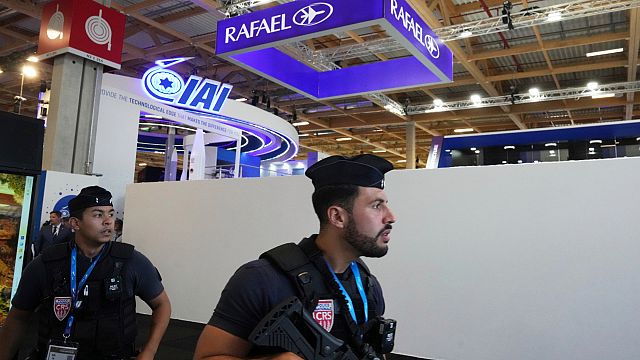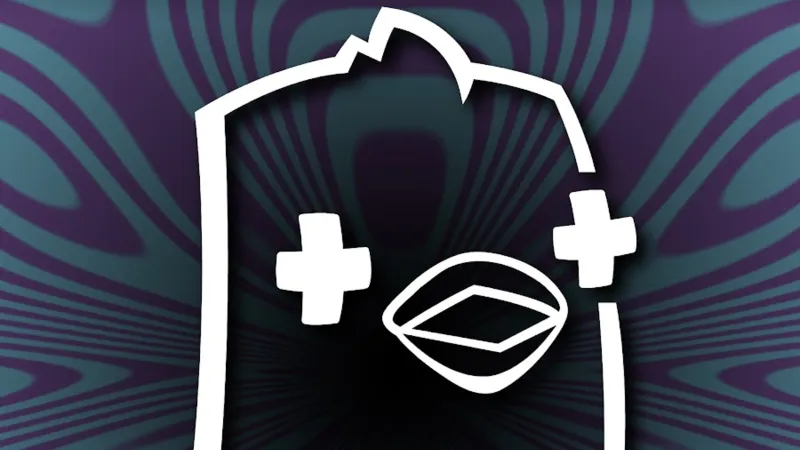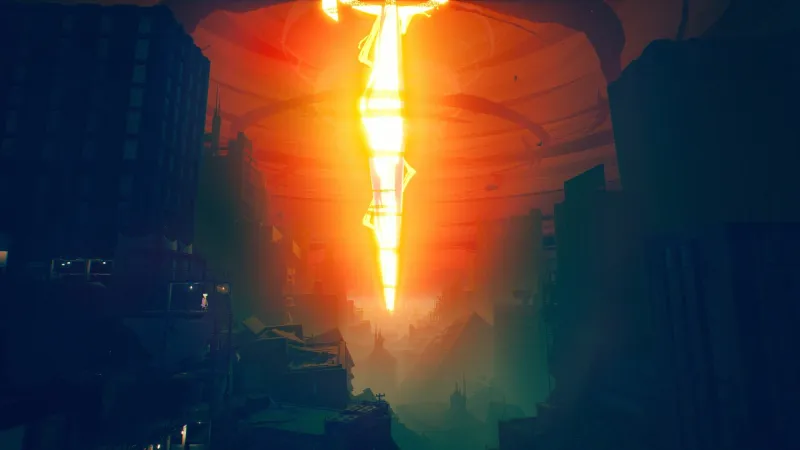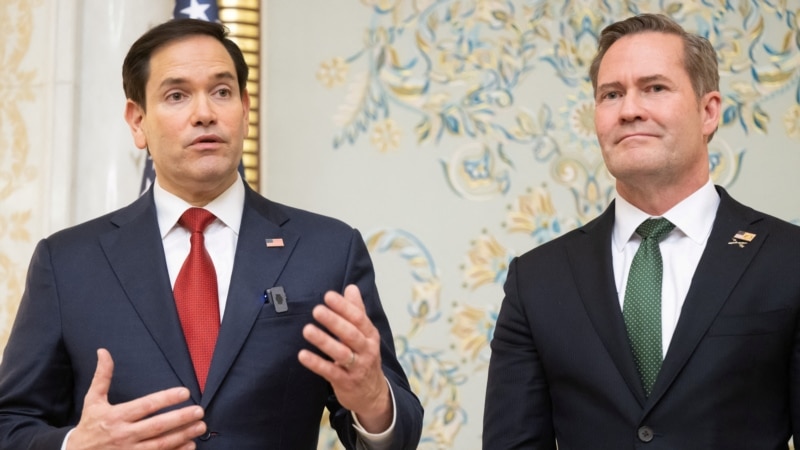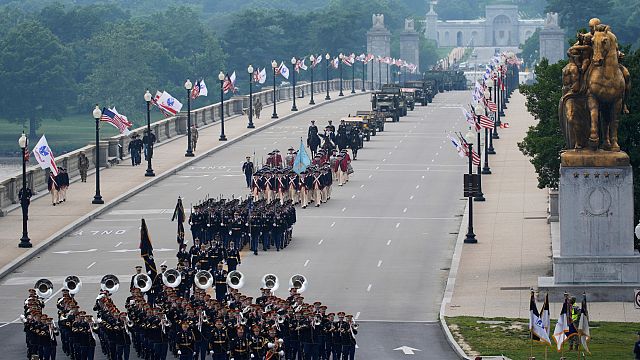Sahel Crisis Goes Coastal as Insurgents Push Toward the Atlantic

At a market in Tougbo, a small town in northern Ivory Coast, the smell of dried fish and fried dough filled the air. Children ran around the bustling stalls where women sold the corn and cassava they had carried on their heads for miles in the countryside. Muslim elders watched the crowds on the sandy main street, while Christian worshipers poured out of church after Sunday mass.
Yet the bustle belied an insidious threat.
About half of terrorism deaths worldwide in 2023 were recorded in the Sahel, the arid region in West Africa known for its seminomadic tribes and ancient trade routes. Emboldened by their success in the landlocked nations of Burkina Faso, Mali and Niger, insurgents affiliated with Al Qaeda and the Islamic State are moving south toward the Atlantic and into coastal nations such as Ivory Coast.
African and Western officials fear the advance will further destabilize West Africa at a time when the United States and European allies have drawn down their presence here, and the Trump administration has turned its attention to a chaotic deportation policy and travel ban that does not include any nations in the Sahel.
As the insurgents push toward the Atlantic, fears are growing that an area with one of the world’s youngest populations and high levels of poverty will soon fall under jihadist rule.
“One of the terrorists’ new objectives is gaining access to West Africa coasts. If they secure access to the coastline, they can finance their operations through smuggling, human trafficking and arms trading,” Lt. Gen. Michael E. Langley, the head of U.S. Africa Command, said last month. “This puts not just African nations at risk, but also increases the chance of threats reaching the U.S. shores.”
The Al Qaeda branch operating in West Africa is now one of the group’s most powerful franchises, and Islamic State militants have staged so many attacks in the region recently that Vladimir Voronkov, the United Nations’ top counterterrorism official, has warned that “a vast territory stretching from northern Nigeria to Mali could fall under their effective control.”

Last fall, The New York Times spent weeks documenting the jihadists’ movement south. On one side of this new frontline are the three landlocked nations, all of which are ruled by military juntas and include vast swaths of territory already under jihadist control. On the other are the coastal nations of Ivory Coast, Ghana, Togo and Benin, which are trying to keep the insurgents out.
Those coastal nations have collaborated with Western governments for years. But as the Trump administration dismantles decades of foreign policy, including eliminating tens of millions of dollars in U.S. security assistance, African allies are growing wary of Washington’s counterterrorism efforts on the continent.
“Ivory Coast is an example of stability in the region, but the lock can break,” said Lassina Diarra, a researcher at the International Academy for the Fight against Terrorism in Ivory Coast.
Jihadists Moving Freely
After French and American troops were kicked out of the junta-led nations of the Sahel, countries like Ivory Coast became the focus of the West’s new containment strategy.
The United States provided Ivory Coast with $65 million to support counterterrorism and border security last year. About 50 U.S. military personnel and contractors are deployed here, according to the U.S. Africa Command. General Langley met with top military and government officials here earlier this year amid rumors that the United States plans to build a drone base in the country.
But continued support remains uncertain.
A $20-million program financed by the United States Agency for International Development that identified early signs of extremism was terminated in January, after President Trump announced the freezing of all U.S. foreign aid.
Tougbo sits on the front line of Ivory Coast’s fight against the insurgents. Soldiers stand guard in fortified outposts at the town’s entrance and exit. Burkina Faso is just miles away.
Despite the military’s presence, jihadists move freely, locals and security officials said. “They’re among us,” said a doctor working near the border, who like most locals in the area spoke on condition of anonymity for fear of his safety.
“We see them,” he added.
The insurgents buy supplies at the market or through young people seeking quick cash. They wear civilian clothes and do not openly carry weapons. But they entice young men with lucrative offers to do business in exchange for silence.
“It is because of a lack of jobs that our sons join this garbage,” said Kadidja Barry, a community leader in Doropo, a hub near the border. Week after week, local women come and sit on plastic chairs under her towering mango tree as Ms. Barry warns them about the menace creeping toward their town.
“‘Keep your sons away from the jihadists,’” she tells them. “‘They’re a mafia.’”
Al Qaeda-affiliated insurgents mostly recruit Fulani men, the ethnic group to which Ms. Barry belongs. Their recruitment has heightened discrimination against the Fulani community in Ivory Coast, which has seen a large influx of Fulani refugees from Burkina Faso.
“We must protect them, we must send them to school,” Ms. Barry said of the young men in her community. “But in some areas, some of the youth are almost forced to join these groups.”
At night, insurgents sneak into health care centers in Ivory Coast seeking treatment for wounds sustained while fighting in Burkina Faso, according to medical workers. They have also moved into nearby Comoé National Park, a sprawling forest that is now off limits because of the violence.
Kidnappings and cattle theft have also increased.
“What we used to see in Burkina Faso, we now see it here,” said Iréné, a cattle owner who lost dozens of cattle last year. When his employee crossed into Burkina Faso in search of the missing animals, Iréné said, he was kept hostage for weeks by men who said they were jihadists.
‘Mistakes and Transgressions’
Ivory Coast has erected military outposts, ramped up intelligence gathering and deployed ground troops along its border in an effort to keep the insurgents at bay.
By some accounts, these methods are working.
A senior military officer, speaking on condition of anonymity to openly discuss the country’s national security, acknowledged that the army had previously underestimated the threat. “Now, we’re squeezing them,” the officer said. “But we also know that the populations say, ‘Hi,’ to us when we patrol, but then do business with the jihadists.”
In the village of Bolè, dozens of armed men calling themselves “fighters of Islam” took residents hostage one evening during the month of Ramadan in 2021, according to victims and witnesses. The insurgents ordered the villagers to stop informing the army of their presence or face deadly consequences.
But after the insurgents left, local leaders called the military anyway, and soldiers have remained posted near the village ever since.
Another border town, Kafolo, faced two deadly attacks on soldiers in 2020 and 2021. The military erected a new base there in 2023 and Kafolo hasn’t seen another attack.
“With the security forces, the fear is gone,” said Lamissa Traoré, a youth leader in Kafolo.
The Support Group for Islam and Muslims, the umbrella organization that includes Al Qaeda’s local franchise and is known by its Arabic acronym, JNIM, has tried to present a more amenable face to locals in some parts of the Sahel. It has vowed to protect residents from corrupt government officials who they say are responsible for the region’s poverty.
Yet deaths attributed to the organization in 2023 were at their highest since 2017, when the group was founded, according to the Global Terrorism Index.
In response to questions from The Times, the emir of Al Qaeda’s branch operating in West Africa said his group was “formally active” in Ivory Coast and other coastal nations.
“If they wish, they can leave the situation as it is,” Abu Yusuf Ubaydah al-Annabi, the emir, said of the local governments. “Or perhaps it will get worse.”
When asked about human rights abuses committed by the group, Mr. al-Annabi said the insurgents had made “some mistakes and transgressions.” But, he added, “the only person who never makes mistakes is the one who does not work.”
‘A Ticking Bomb’
Ivory Coast’s approach to keeping the jihadists away has been hailed by security analysts for its combination of military efforts and economic development.
International nonprofits have helped renovate dams to irrigate farms for hundreds of villagers. The government has built roads along the border, provided electricity in remote areas and trained more than 50,000 young Ivorians in farming, welding and mechanics.
But many young Ivorians say they’re not seeing any benefits. Youth Minister Mamadou Touré cited poverty as the main driver of recruitment into the extremist groups. More than three quarters of Ivory Coast’s population is under 35. Most are looking for work.
“Either we provide innovative and satisfying answers to unemployment, or it will remain a ticking bomb that can explode at any time,” Mr. Touré said.
The youth ministry sponsors a job training program, but some trainees still lack paying jobs after six months of training. Two former trainees at a garage in Korhogo, the largest city in northern Ivory Coast, said their boss gave them free soap on weekends as compensation.
“Young people are being trained, but after that, what?” said Abdoulaye Bamba, a youth leader in the border town of Ouangolodougou. “Then the terrorists come and offer them a brand-new motorcycle.”
“One day it will blow up,” he said, referring to the insurgents’ creep into Ivory Coast. “And politicians won’t be able to say that we didn’t warn them.”
What's Your Reaction?
 Like
0
Like
0
 Dislike
0
Dislike
0
 Love
0
Love
0
 Funny
0
Funny
0
 Angry
0
Angry
0
 Sad
0
Sad
0
 Wow
0
Wow
0




